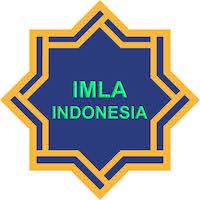Weak Motivation to learn Arabic in the New Normal Life/ضعف دافعية تعلم اللغة العربية في الحياة الطبيعية الجديدة
DOI:
https://doi.org/10.18592/jams.v8i1.4782Keywords:
Demotivation, Arabic Learning, New NormalAbstract
The Covid-19 emergency outbreak was imposed by the Indonesian government, and the minister of education launched a study from home since March 2020. Learning is done online / in accordance with government regulations to break the spread of the epidemic. Then at the present time after going through the difficult times of the covid-19 pandemic, we are faced with a transition period before this outbreak ends which is known as the new normal which is required to get used to online learning. This study aims to reveal the problem of demotivating Arabic learning that occurs at Madrasah Tsanawiyyah 1 and 2 in district Gambut province south kalimantan. This study used a descriptive qualitative method and the research approaches used case study. The research sample was selected using purposive sampling technique, and the research data were obtained through observation and interviews. The results showed that (1) of the 10 types of motivation proposed by Harmer (2001), only 4 types of demotivation were experienced by students in learning Arabic at Madrasah Tsanawiyyah 1 and 2 in district Gambut province south kalimantan, that is demotivative because of conflict of values, demotivative because of lack of confidence, demotivative because of isolation, demotivative because of boredom.References
Abdul, Muhbib Wahab, Epistemologi dan Metodologi Pembelajaran Bahasa Arab. Jakarta: Lembaga Penelitian UIN Syarif Hidayatullah. 2008.
Ainin, Moch. Fenomena Demotivasi dalam Pembelajaran Bahasa Arab di Madrasah: Penyebab dan Alternatif Pemecahannya, pidato pengukuhan guru besar sebagai Guru Besar dalam bidang Pembelajaran Bahasa Arab pada Fakultas Sastra (FS) Universitas Malang (UM)
Bahruddin, Uril . “Musykilah Ta’limiyah al-Lughah al-Arabiyah Bi Jami’ah Maulana Malik Ibrahim Malang Wa al-Hulul al-Muqtarahah Laha,” LiNGUA 12, no. 1 (2017).
Buckley, Dylan, “Ten Types of Demotivation and Howto Overcome Them”. Situs Resmi Lifehack. https://www.lifehack.org/articels/productivity/10-types-demotivation-and-how-overcome-them.html. (27 Desember 2020 Pukul 15.35 WITA)
“Cambridge Dictionary” online dictionary. https://dictionary.cambridge.org/dictionary/english/demotivation.
Deviana, Ade Destri “The Impact of Online Learning to Write Arabic with Creative Thinking During the Covid-19 Period,” Al-Falah: Jurnal Ilmiah Keislaman dan Kemasyarakatan 21, no. 1 (2021): 42–53.
Dörnyei, Zoltan. & Ema Ushioda, Teaching and Researching Motivation (2nd ed.). Harlow, England: New York, Longman. 2010.
Fakhrurrozi, Aziz. dan Erta Mahyudin, Pembelajaran Bahasa Arab. Jakarta: Direktorat Jenderal Pendidikan Islam Kementerian Agama. 2012.
Gardner, Robert C. “Motivation and Second Language Acquisition,” Porta Linguarum 8. 2007.
MacIntyre, Peter. “Toward a social psychological model of strategy use,” Foreign Language Annals 27 (2). 1994.
Mufidah, Nuril. Foreign Language Teaching And Information Communication Technology: Is There Opportunity For Quranic Language Teachers? Hunafa. Vol 16 No 1. 2019. https://jurnalhunafa.org/index.php/hunafa/article/view/526/461
Muhonen, Jenni “Second Language Demotivation: Factors That Discourage Pupils From Learning The English Language,” tesis di University Of Jyväskylä, 2004.
Nyikos, Martha. dan Rebbeca Oxford. “A Factor Analytic Study of Language Learning Strategy Use: Interpretations from Information-Processing Theory and Social Psychology.” Modern Language Journal 77. 1993.
Prihwanto, Puji. Bahasa Arab Untuk Prodi HKI (Hukum Keluarga Islam), Sukoharjo: CV. Sindumata. 2013.
Rosyidi, Abdul Wahab, Media pembelajaran bahasa Arab. Malang: UIN-Maliki Press. 2009.
Downloads
Published
Issue
Section
License
Copyright (c) 2021 Akhmad Zulfa

This work is licensed under a Creative Commons Attribution 4.0 International License.
Authors who publish with this journal agree to the following terms:
- Authors retain copyright and grant the journal right of first publication with the work simultaneously licensed under a Creative Commons Attribution License that allows others to share the work with an acknowledgement of the work's authorship and initial publication in this journal.
- Authors are able to enter into separate, additional contractual arrangements for the non-exclusive distribution of the journal's published version of the work (e.g., post it to an institutional repository or publish it in a book), with an acknowledgement of its initial publication in this journal.
- Authors are permitted and encouraged to post their work online (e.g., in institutional repositories or on their website) after the submission process, as it can lead to productive exchanges, as well as earlier and greater citation of published work.






